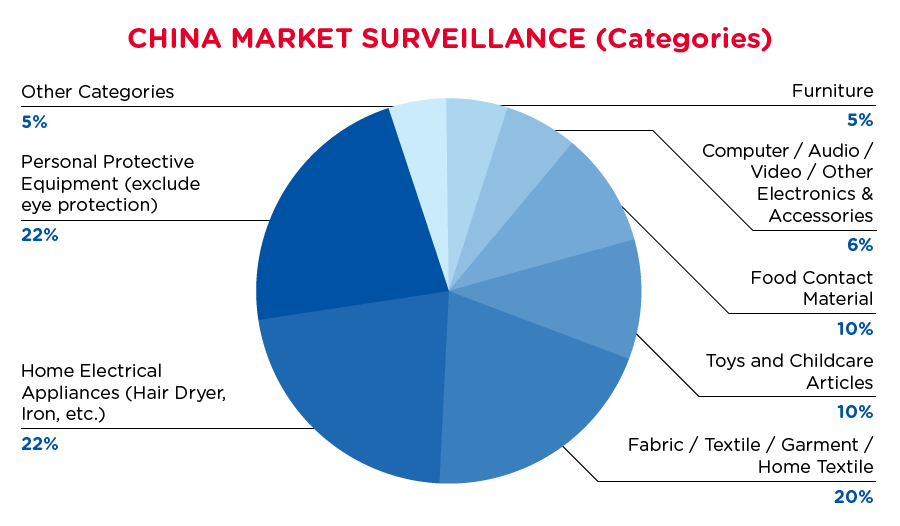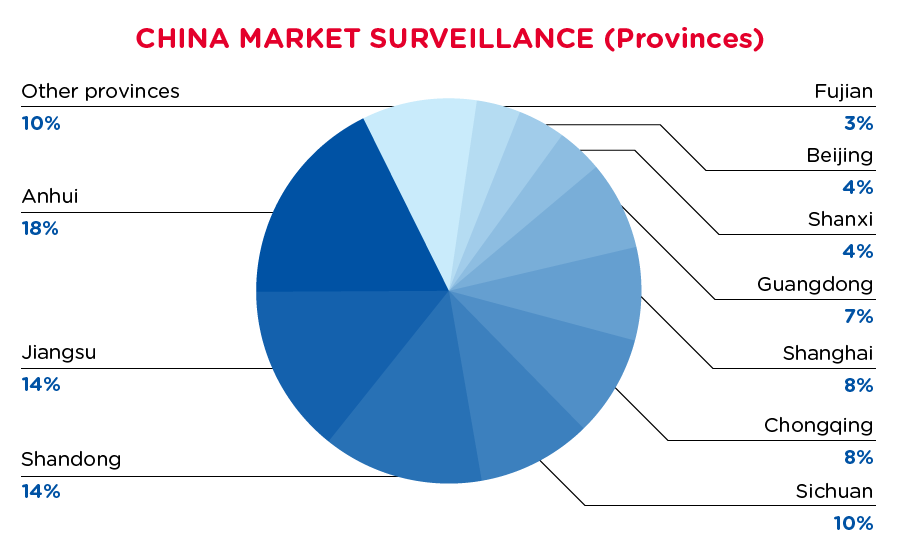October 2020 Regulatory Update
On September 30, The Toxic-Free Cosmetics Act known as Assembly Bill 2762 was signed into law. Starting January 1, 2025, a person or entity manufacturing, selling, delivering, holding of offering for sales in commerce any cosmetic product that contains the intentionally added ingredient under the bill is prohibited.
View Story Read MoreThe list of banned ingredients includes:
- Dibutyl phthalate (CAS no. 84-74-2).
- Diethylhexyl phthalate (CAS no. 117-81-7).
- Formaldehyde (CAS no. 50-00-0).
- Paraformaldehyde (CAS no. 30525-89-4).
- Methylene glycol (CAS no. 463-57-0).
- Quaternium-15 (CAS no. 51229-78-8).
- Mercury (CAS no. 7439-97-6).
- Isobutylparaben (CAS no. 4247-02-3).
- Isopropylparaben (CAS no. 4191-73-5).
- m-Phenylenediamine and its salts (CAS no. 108-45-2).
- o-Phenylenediamine and its salts (CAS no. 95-54-5).
- The following per- and polyfluoroalkyl substances (PFAS) and their salts:
- Perfluorooctane sulfonate (PFOS); heptadecafluorooctane-1-sulfonic acid (CAS no. 1763-23-1).
- Potassium perfluorooctanesulfonate; potassium heptadecafluorooctane-1-sulfonate (CAS no. 2795-39-3).
- Diethanolamine perfluorooctane sulfonate (CAS 70225-14-8).
- Ammonium perfluorooctane sulfonate; ammonium heptadecafluorooctanesulfonate (CAS 29081-56-9).
- Lithium perfluorooctane sulfonate; lithium heptadecafluorooctanesulfonate (CAS 29457-72-5).
- Perfluorooctanoic acid (PFOA)(CAS no. 335-67-1).
- Ammonium pentadecafluorooctanoate (CAS no. 3825-26-1).
- Nonadecafluorodecanoic acid (CAS no. 335-76-2).
- Ammonium nonadecafluorodecanoate (CAS no. 3108-42-7).
- Sodium nonadecafluorodecanoate (CAS no. 3830-45-3).
- Perfluorononanoic acid (PFNA)(CAS no. 375-95-1).
- Sodium heptadecafluorononanoate (CAS no. 21049-39-8).
- Ammonium perfluorononanoate (CAS no. 4149-60-4).
Cosmetic products that contain an unavoidable trace amount of the chemicals listed in the ban would be exempt from this regulation.
The list of banned specific ingredients is consistent with the prohibitions under EU cosmetic regulation, No.1223/2009, Annex II, which also prohibits chemicals in cosmetic products sold in the EU market.
Contact: Andy Choi (Senior Manager)
Phone: (852) 3185 8045
Email: regulatoryupdates@qima.com
On September 24, the New Jersey Assembly passed legislation banning single-use plastic bags and paper bags at large grocery stores. It also prohibits the use of polystyrene foam containers at restaurants, and makes plastic straws with meals by-request only. The bill would come into force in the spring of 2022.
View Story Read MoreThe bill has three major components:
- Banning film plastic bags, like those found at grocery stores, regardless of thickness. It also bans paper bags at supermarkets that are over 2,500 square feet. This is in an effort to get shoppers to bring their own reusable bags, like woven plastic tote bags with handles.
- Banning polystyrene clam-shell food containers and other products like plates, cups, food trays and utensils.
- Making plastic straws available only upon request at restaurants.
The three components would be implemented in different phases. The ban on plastic and papers bags would take effect 18 months after it is signed into law. Foam food products and containers like clam-shell takeout boxes would be banned in 18 months. Restaurants would only be permitted to provide a plastic straw to a customer upon request 12 months after the law is signed.
Contact: Vivian Chan (Technical Consultant)
Phone: (852) 3185 8052
Email: regulatoryupdates@qima.com
The U.S. Federal Trade Commission (FTC) has amended the Rules & Regulations Under the Textile Fiber Products Identification Act to incorporate the latest ISO 2076 standard: ISO 2076:2013(E), “Textiles—Man-made fibres—Generic names.” This incorporation by reference will promote international consensus along with providing manufacturers selling textiles products in multiple countries with more flexibility in the labeling of textile products.
View Story Read MoreSection 303.7 of the Textile Fiber Products Identification Act establishes the generic names for manufactured fibers that must be used in the required fiber content disclosures by:
- Listing the generic names and definitions the FTC has established through its textile petition process, and
- Incorporating by reference the generic names and definitions set forth in the ISO 2076 standard (currently ISO 2076-2010(E) standard is incorporated by reference).
The amendment to incorporate by reference the ISO 2076:2013(E), allows the use of seven additional manufactured fibers, listed below, that were added to the standard in the revision from 2010 to 2013:
- “chitin,”
- “ceramic,”
- “polybenzimidazol,”
- “polycarbamide,”
- “polypropylene/polyamide bicomponent,”
- “protein,” and
- “trivinyl.”
This rule is effective November 5, 2020. The incorporation by reference of certain publications listed in the rule is approved by the Director of the Federal Register as of November 5, 2020.
Contact: David Zhao (Technical Consultant)
Phone: (571) 8999 7142
Email: regulatoryupdates@qima.com
The European Commission is proposing a new defined limit for pentachlorophenol (PCP), its salts and esters under the POP (Persistent Organic Pollutions) Recast Regulation.
View Story Read MoreThe European Commission has published a draft delegated regulation to limit PCP, its salts and esters to no more than 5 mg/kg (0.0005% by weight) where they are present in substances, mixtures or articles. This draft regulation is being made as an amendment to Regulation (EU) 2019/1021 on persistent organic pollutions (‘POP Recast Regulation’). If adopted, the proposed limit will be set in Part A of Annex I to Regulation (EU) 2019/1021.
Originally PCP, its salts and esters were listed in Annex I of Regulation (EU) 2019/1021 (‘POP Regulation’) without an Unintentional Trace Contaminant (UTC) limit value. It was considered that no limit value was needed because it was not expected to find PCP in mixtures and articles. But recently these substances have been determined to be present in some articles, including imported textiles and recovered wood chips for the production of wood panels. Once accepted, the new defined limit of 5 mg/kg for the presence of PCP as an UTC in substances, mixtures and articles, will clarify the legal status and facilitate enforcement of the new rule.
The comment period closed on September 29, 2020, and the draft is planned for adoption in Q4 of 2020.
Contact: Andy Choi (Senior Manager)
Phone: (852) 3185 8045
Email: regulatoryupdates@qima.com
On September 1, 2020, the European Chemicals Agency (ECHA) opened the public comment period on the identification of two potential substances of very high concern (SVHCs) due to reproductive toxicity. The deadline for comments ended October 16, 2020.
View Story Read MoreThe two proposed SVHCs and their potential uses are as following:
| Substance Name | CAS Number (EC Number) | Reason(s) for proposing | Potential Application |
| Bis(2-(2-methoxyethoxy)ethyl) ether | 143-24-8 (205-594-7) |
Toxic for reproduction | Solvent for paints, inks and coatings, as a process chemical and as a lubricant. |
| Dioctyltin dilaurate, stannane, dioctyl-, bis(coco acyloxy) derivs., and any other stannane, dioctyl-, bis(fatty acyloxy) derivs. wherein C12 is the predominant carbon number of the fatty acyloxy moiety | -- | Toxic for reproduction | Stabilisers and catalysts in the production of e.g. plastics and rubber. |
If the two proposals are accepted, the Candidates List of Substances of Very High Concern (SVHC) will expand from 209 to 211 in December 2020 or January 2021.
Contact: Andy Choi (Senior Manager)
Phone: (852) 3185 8045
Email: regulatoryupdates@qima.com
In China, when hazards are identified in consumer products, they will be recalled and published, and this information is updated daily. The China recalls from April 1, 2020 to September 30, 2020 are summarized below:
View Story Read More
| Categories | Frequency |
| Computer / Audio / Video / Other Electronics & Accessories | 14 |
| Fabric / Textile / Garment / Home Textile | 46 |
| Food Contact Material | 22 |
| Furniture | 11 |
| Home Electrical Appliances (Hair Dryer, Iron, etc.) | 50 |
| Personal Protective Equipment (exclude eye protection) | 51 |
| Toys and Childcare Articles | 23 |
| Other Categories^ | 12 |
^Other Categories include Agriculture Equipment, Chemicals, Jewellery, Watch or other Fashion Accessories, Lighting Equipment, , Sporting Goods/ Equipment, Stationery and Homeware with a frequency of less than 6.

| Provinces | Number of Recalls |
| Anhui | 40 |
| Beijing | 9 |
| Chongqing | 19 |
| Fujian | 8 |
| Guangdong | 17 |
| Jiangsu | 32 |
| Shanghai | 18 |
| Shanxi | 9 |
| Shandong | 31 |
| Sichuan | 22 |
| Other provinces^ | 22 |
^Other Provinces include Dongguan, Guanxi, Guangzhou, Hangzhou, Henan, Jiangxi, Shanxi, Shenzhen, Sichuan, Wuhan and Zhejiang with a frequency of less than 6.
For a complete list click here

